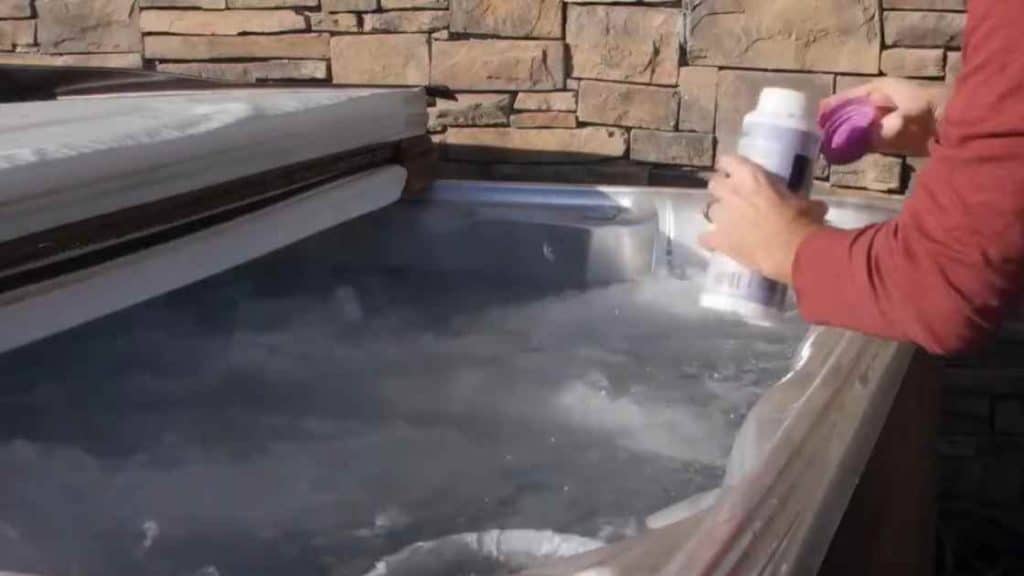Pouring bleach down the drain is not a recommended practice. It can harm plumbing and the environment.
Managing clogged drains can be challenging for homeowners, and you might think of bleach as a quick-fix solution. Bleach is often perceived as a powerful cleaning agent that might clear out clogs and sanitize the pipes. However, while it can kill bacteria and deodorize your drain, bleach use comes with potential risks.
When it comes to drain maintenance, many wonder, “Does pouring bleach down the drain help?” However, it’s essential to understand that bleach, with its corrosive nature, can cause harm to pipes over time, particularly in older homes.
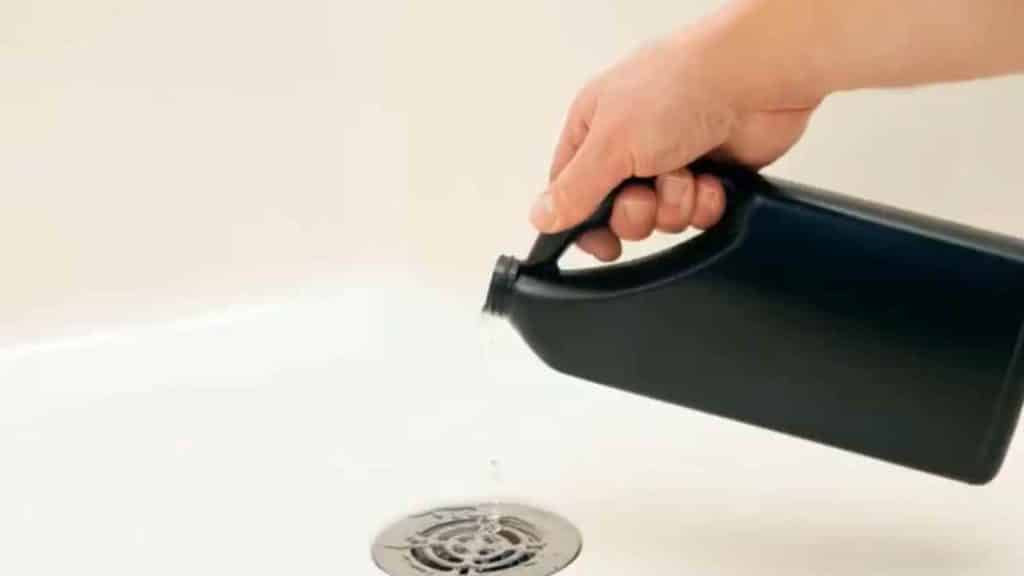
Environmental concerns add another layer, as bleach might react with other substances, leading to the formation of potentially toxic compounds. Given these considerations, it’s wise to Discover safer and more eco-friendly alternatives such as baking soda and vinegar.
Prioritizing methods that not only keep your plumbing intact but also contribute to a healthier planet is key. Making the right choices today can spare you from future plumbing issues and expensive repairs.
Introduction To Household Drain Maintenance
Maintaining household drains is vital for a smooth-running home. Drains clog over time with hair, grease, and food. Quick and simple fixes can avoid major problems. Knowing how to keep these drains clear is the first step to preventing backups and costly repairs.
- Slow draining – Water backs up, indicating a blockage.
- Bad odors – Stuck food or buildup cause foul smells.
- Gurgling sounds – Trapped air in pipes makes noise.
| Action | Benefit |
|---|---|
| Use drain strainers | Catch debris before it enters pipes. |
| Hot water flush | Clears grease buildup weekly. |
| Regular cleaning | Maintains clear, odor-free pipes. |
Regular drain care preserves pipes and avoids chemical harm. Bleach is one solution, yet not always the safest or most effective. Let’s Discover proper drain maintenance and whether bleach truly helps.
Bleach And Its Chemical Properties
When it comes to keeping drains clean, bleach often comes to mind. People use it hoping to clear clogs and sanitize pipes. But what is bleach and how does it interact with the materials in our drain?
Let’s dip into the science behind bleach, its composition, and its functionality as a cleaning agent.
Composition Of Bleach And How It Works
Bleach is not just one substance. It is often a solution made up of water and sodium hypochlorite. This active ingredient is powerful and reacts with a variety of organic substances. When it comes into contact with germs and dirt, it breaks them down. This process is called oxidation.
By pulling electrons away from molecules, bleach effectively disinfects and whitens. So, when you pour it down the drain, it works to kill bacteria and viruses.
Bleach As A Cleaning Agent: Pros And Cons
- Kills germs: Bleach is great for eliminating bacteria and viruses.
- Whitens: It brightens up sinks, bathtubs, and porcelain.
- Breaks down organic matter: Helps in dissolving some blockages.
But, bleach is not all good. Here’s why you should be careful:
- Corrosive: Can damage pipes, especially if they are old or worn.
- Chemical reactions: Mixing with other cleaners can create dangerous fumes.
- Environmental concerns: Can harm wildlife if it enters natural water systems.
While bleach can help clean and disinfect, its aggressive nature means we should use it wisely and sparingly. Always follow the safety instructions and consider the potential drawbacks before pouring it down your drain.
The Pros Of Using Bleach In Drains
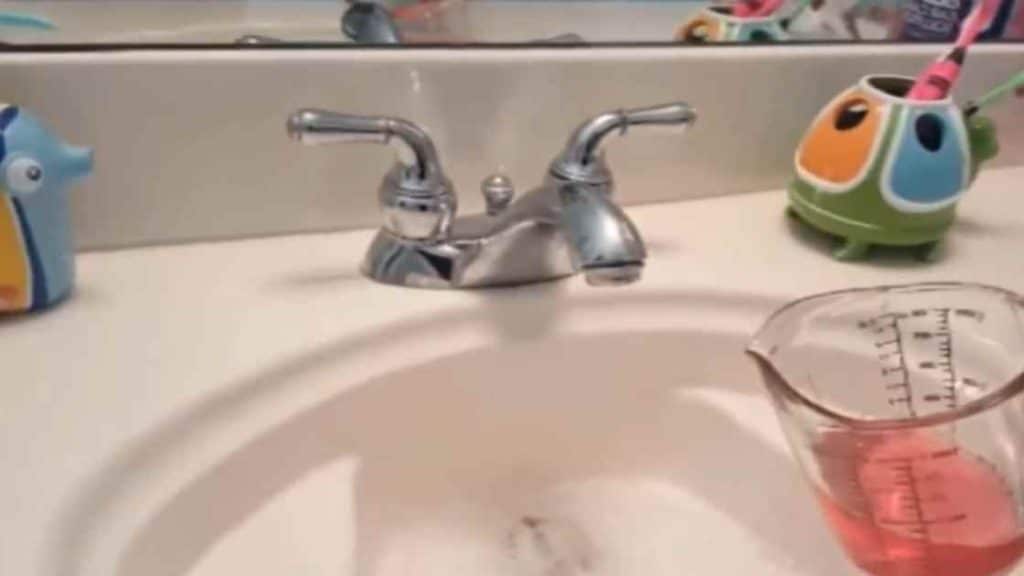
When it comes to maintaining household drains, some swear by the power of bleach. The benefits of using bleach can be vital for those dealing with frequent clogs or mold issues. Let’s discover the advantages of introducing bleach into your drain cleaning routine.
Disinfecting Power Of Bleach
Bleach is known for its robust disinfecting properties. It’s capable of killing germs and bacteria that tend to accumulate in the damp environments of drains. This can help prevent the spread of illness and maintain a healthier home environment.
Effectiveness Against Mold And Mildew
Mold and mildew thrive in moist areas. Using bleach can effectively reduce these unwanted growths. Regular bleach use in drains can keep mold at bay, ensuring that your sinks remain clean and hygienic.
Breaking Down Organic Material
Drains often clog due to organic matter like hair and food remnants. Bleach can break down these materials, making it easier to flush them out of your plumbing system. This can lead to fewer blockages and a smoother drainage flow.
The Cons Of Using Bleach In Drains
‘The Cons of Using Bleach in Drains’ discovers the drawbacks of this common practice. Homeowners may reach for bleach to tackle drain odors and clogs, but the implications extend beyond a quick fix.
Being informed about the negatives can lead to safer, more sustainable choices for household maintenance.
Potential Damage To Plumbing Systems
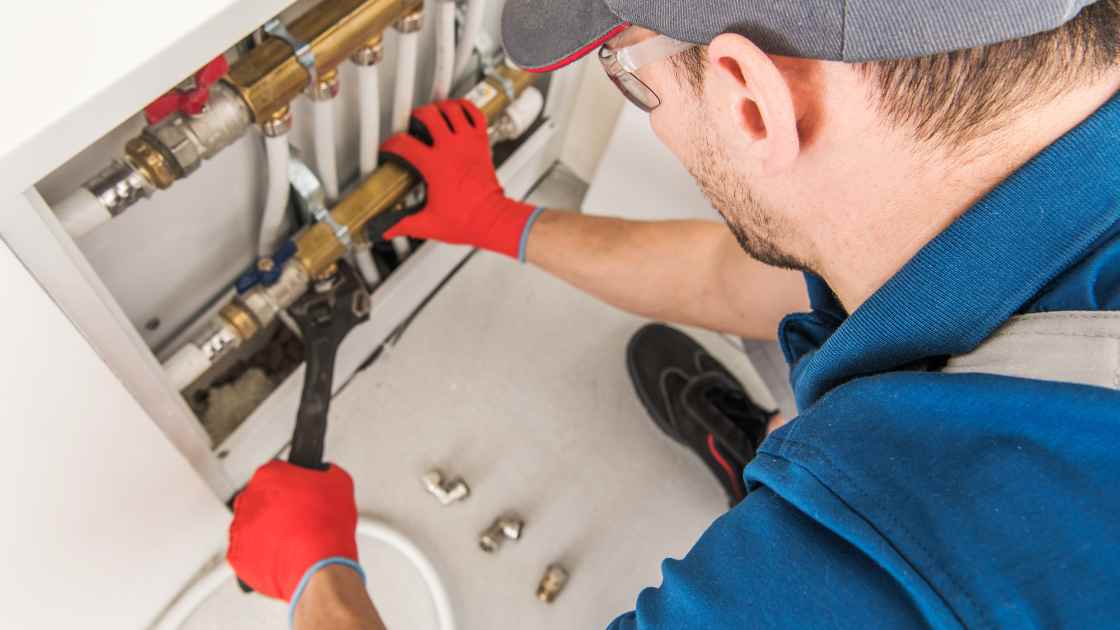
Consistent use of bleach can harm plumbing infrastructure. Over time, bleach may corrode pipes, especially in older homes with metal plumbing. This corrosion process can lead to leaks or even burst pipes, resulting in costly repairs and potential water damage.
PVC pipes, although more resistant, aren’t immune to bleach’s deteriorating effects either. Consider a safer alternative to preserve the integrity of plumbing systems.
Environmental Impact Of Bleach
Bleach, comprised of harsh chemicals, doesn’t just vanish down the drain; it enters the water system. Water treatment plants work to remove chemicals, but the process isn’t perfect.
Residual bleach can harm aquatic wildlife and disrupt ecosystems. This environmental toll suggests a need for more eco-friendly solutions.
Safety Concerns With Bleach Use
When bleach mixes with other household substances, it can form toxic gases. These gases are dangerous to inhale and can cause respiratory issues or worse.
To keep homes safe, proper ventilation is essential—still, accidents can happen. Storage and use of bleach demand caution, urging the shift toward non-toxic alternatives for drain maintenance.
| Action | Risk | Recommended |
|---|---|---|
| Using bleach in drains | Pipe damage, ecological harm, health risks | Safer, eco-friendly cleaning methods |
Alternatives To Bleach For Drain Cleaning
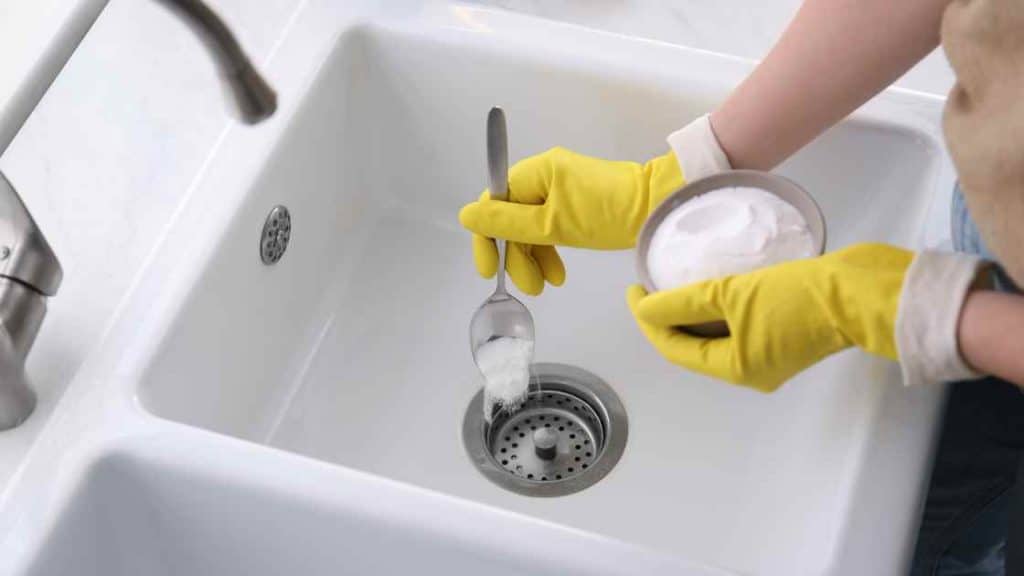
While bleach might seem like a handy quick fix it is not always the safest or most effective method for unclogging drains.
Luckily, various alternatives provide a friendlier approach to your pipes and the environment. Below are some effective methods to keep your drains clear without relying on bleach.
Natural Homemade Drain Cleaners
Natural mixtures can be just as powerful in addressing your drain dilemmas. Here are a few DIY solutions:
- Baking Soda and Vinegar: A combination that creates a fizzy reaction, helping to break down clogs.
- Boiling Water: Simple yet effective; pour down the drain to melt fats and decrease blockages.
- Salt and Baking Soda: This duo acts as a scouring agent to clean the drain walls.
- Lemon Juice: Offers a natural acid that cuts through grease, leaving a fresh scent.
Enzymatic Drain Cleaners: A Safer Option
Enzymatic cleaners use biological enzymes to break down organic materials in drains. These are non-toxic and safe for all types of plumbing:
| Brand | Usage | Eco-Friendly |
|---|---|---|
| Green Gobbler | Bi-weekly | Yes |
| Biokleen | Monthly | Yes |
| Earth Enzymes | As needed | Yes |
Mechanical Methods For Unclogging Drains
Mechanical gadgets can physically remove clogs without chemicals. Consider these tools:
- Plunger: Uses suction to dislodge blockages.
- Plumbing Snake: A flexible rod that reaches deep into pipes to remove obstructions.
- Drain Auger: Ideal for stubborn clogs, turned manually to break up blockages.
These methods ensure clean drains while potentially extending the life of your plumbing. Safer for both your home and the ecosystem, they are worth considering over bleach.
Best Practices For Using Bleach In Drains
Best Practices for Using Bleach in Drains: Keep drains clear and odors at bay with bleach. Knowing when and how to use it safely is key. Follow these best practices for optimal results while preserving your plumbing and environment.
When To Use And Avoid Bleach
- Use bleach for mild clogs and odors.
- Avoid septic systems—bleach kills good bacteria.
- Don’t mix bleach with other cleaners—dangerous gases can form.
Appropriate Dilution Ratios
| Drain Cleaning | Dilution Ratio |
|---|---|
| Light maintenance | 1 part bleach to 10 parts water |
| Heavy odors | 1 part bleach to 5 parts water |
Precautions To Take When Using Bleach
- Protect your skin and eyes with gloves and goggles.
- Ventilate the area—open windows and use fans.
- Don’t overuse—bleach can corrode pipes over time.
- Pour slowly—avoid splashes that might damage surfaces.
- Rinse well after use to prevent corrosion and residue.
Expert Advice On Drain Maintenance
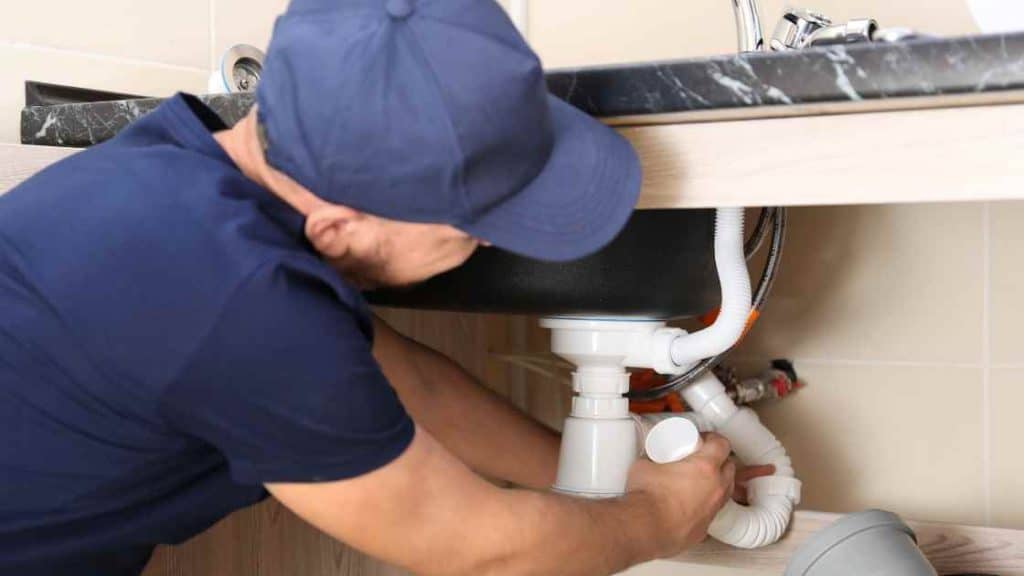
Keeping drains clean ensures a smooth-running home. Expert advice is crucial for proper drain maintenance.
Some believe pouring bleach down a drain keeps it clear, but experts weigh in on this matter with definitive guidance.
Plumbing Professionals’ Recommendations
Plumbing professionals advise caution when using bleach. It can be harsh on pipes and the environment. Most experts suggest alternatives for safety and effectiveness.
- Hot water: Use weekly to maintain flow.
- Baking soda and vinegar: A natural combo that breaks down clogs.
- Manual cleaning: Use a drain snake to remove blockages.
- Enzymatic cleaners: Best for gentle, regular maintenance.
Long-term Drain Maintenance Tips
| Tip | Action | Frequency |
|---|---|---|
| Regular Flushing | Run hot water after use | Daily |
| Biological Agents | Apply enzymatic cleaners | Monthly |
| Physical Removal | Use a plunger or drain snake | As needed |
By following these expert tips, you can extend the life of your drains. Prevent buildup with regular upkeep. Bleach is not a one-size-fits-all solution. Prioritize safe, routine maintenance to avoid plumbing issues.
Environmental Considerations Of Drain Cleaners
When it comes to household maintenance, using bleach to clean drains is a common practice. However, the long-term environmental impacts are often overlooked.
Exploring the implications on water bodies and alternative sustainable practices is vital for ecologically responsible drain maintenance.
Impact Of Chemical Drain Cleaners On Water Bodies
- Chemical composition: Most drain cleaners contain harsh chemicals like chlorine.
- Toxicity to aquatic life: Once in waterways, these substances can be harmful to fish and plants.
- Water pollution: Overuse contributes to the degradation of water quality in lakes, rivers, and oceans.
Bleach and similar cleaners can upset the delicate balance of ecosystems. They can also make water treatment more challenging.
Sustainable Practices For Drain Maintenance
Avoiding harsh chemicals helps protect our environment. Consider these eco-friendly alternatives:
- Boiling water: Often clears minor clogs without any chemicals.
- Baking soda and vinegar: A natural reaction that helps break down blockages.
- Mechanical tools: Plungers or drain snakes physically remove clogs without chemical use.
Engaging in these practices is a step towards healthier, cleaner waterways. It ensures safe environments for future generations.
Health And Safety Guidelines For Handling Bleach
The use of bleach in household cleaning highlights the need for clear health and safety guidelines. Bleach is effective for sanitizing and whitening surfaces, but it requires careful handling.
This section provides essential tips for using bleach without compromising health and safety standards.
Proper Usage And Storage Of Bleach
Bleach serves as a powerful disinfectant, yet it must be handled with care.
- Always read labels for application instructions and safety tips.
- Use gloves and eye protection to avoid skin and eye irritation.
- Never mix bleach with ammonia or other cleaners. This can create toxic fumes.
- Keep in a cool, dry place, away from children and pets.
- Ensure proper ventilation when applying bleach.
- Label the storage container if transferring bleach to a new one.
First Aid For Bleach Exposure
Accidents happen despite precautions. Quick action is vital following bleach exposure.
| Exposure Type | Immediate Action |
|---|---|
| Eye Contact | Rinse with water for 15 minutes. |
| Skin Contact | Wash with water and soap. |
| Ingestion | Do not induce vomiting. Seek medical help. |
| Inhalation | Move to fresh air. Seek medical attention if breathing is difficult. |
Making Informed Decisions For Drain Care
Making Informed Decisions for Drain Care is pivotal in maintaining a healthy home environment. Homeowners often consider pouring bleach down the drain to clean and disinfect.
Yet, its effectiveness and safety remain debated. In this final part, we discover the facts to ensure the wellness of both your drains and your family.
Weighing The Pros And Cons Of Bleach
- Pros:
- Kills germs and disinfects
- Removes odors effectively
- Breaks down certain organic materials
- Cons:
- Can corrode pipes over time
- Harmful to the environment
- Potentially dangerous fumes
- Not a solution for severe clogs
These pros and cons are critical. It helps in deciding whether bleach fits within your maintenance routine.
Choosing The Best Method For Your Home
Selecting an appropriate drain care strategy directly impacts your plumbing system’s longevity and efficiency. Here are some alternate methods:
- Use a plunger or plumber’s snake
- Try a homemade mix of baking soda and vinegar
- Pour boiling water for minor clogs
- Regularly clean and maintain drains
- Seek professional plumbing services
Prioritize safety and sustainability by exploring these methods. It ensures your drains stay clear without adverse effects.
Frequently Asked Questions For Does Pouring Bleach Down The Drain Help
Does Bleach Unclog Drains Effectively?
Pouring bleach down the drain is not recommended for unclogging. It may kill bacteria and remove odors but doesn’t break down clogs effectively. For clogs, mechanical methods or a dedicated cleaner are preferred.
Is It Safe To Pour Bleach Down The Sink?
Using bleach occasionally in small amounts can be safe, but it poses risks. It can damage plumbing and septic systems with frequent use. Always dilute and use sparingly to minimize harm.
Can Bleach React With Other Substances In Drains?
Bleach can react with other substances, potentially creating toxic gases or harmful compounds. Especially, mixing with ammonia or acids can release chlorine gas. Ensure the drain is clear from other chemicals before using bleach.
What Are Alternatives To Bleach For Drain Cleaning?
Baking soda and vinegar can be effective, natural alternatives. Enzyme-based cleaners also provide a safer option for regular maintenance. For tough clogs, a plunger or plumber’s snake is recommended.
Is bleach good for unclogging drains?
Bleach is not recommended for unclogging drains as it can damage pipes and plumbing fixtures. Instead, use a specialized drain cleaner or a mixture of baking soda and vinegar for a safer and more effective solution.
Does bleach help a stinky drain?
Bleach can help eliminate unpleasant odors in a stinky drain by killing bacteria and removing organic matter causing the smell. Pouring a small amount of bleach down the drain and letting it sit before flushing with water can be effective in addressing the issue.
Conclusion
To sum up, pouring bleach down your drain is not a go-to solution. While it may tackle certain bacteria and odors, the risks outweigh the benefits. Consider safer, eco-friendly alternatives to keep your pipes clean. Remember, bleach should be a last resort, not a regular maintenance habit.
Choose wisely for your home and the environment.

